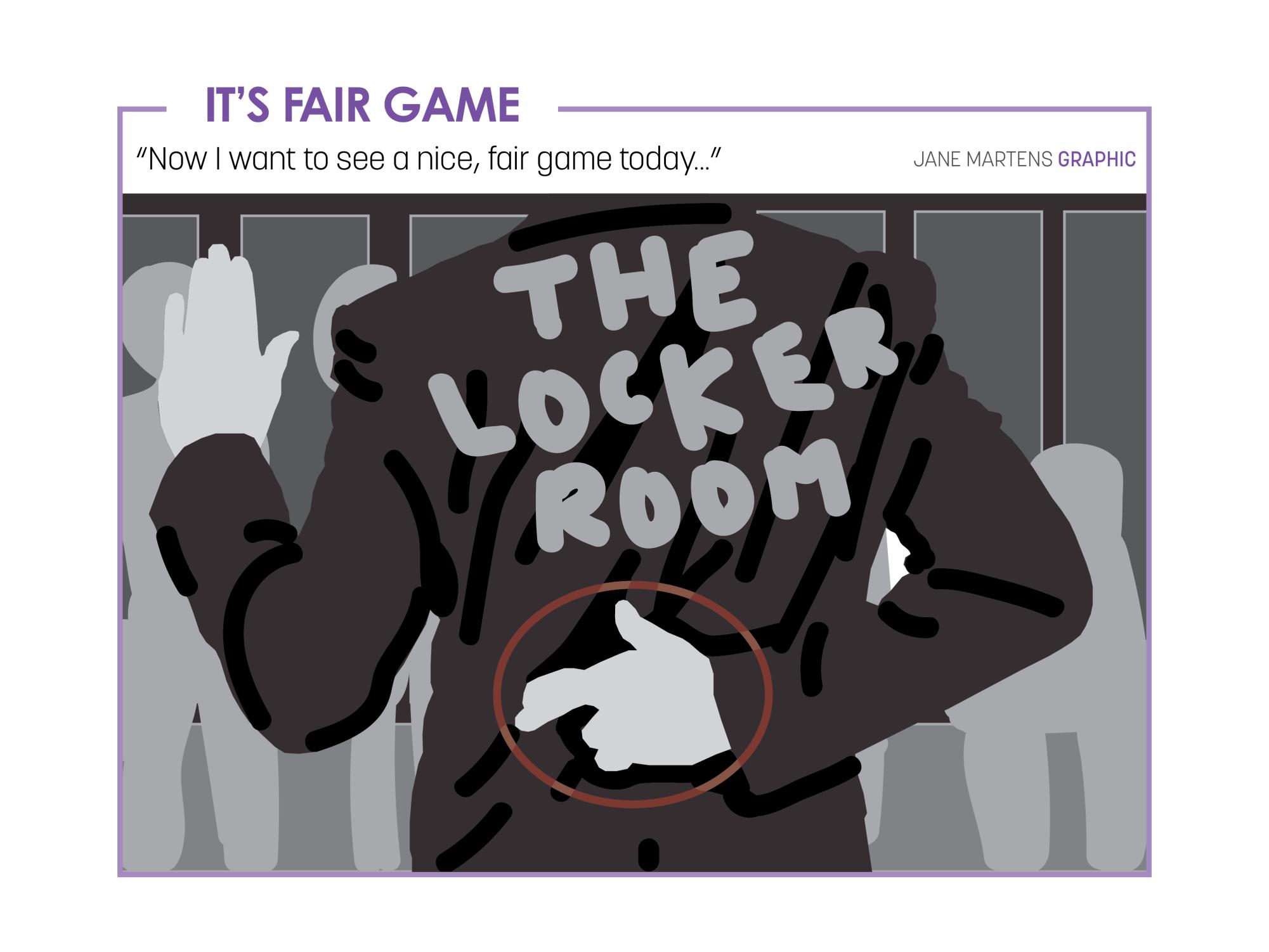Many sports fans will watch sports games not only for entertainment, but also to understand how the sport works and the rules and guidelines. For others, they may just watch it for pure entertainment without realizing the rules and how they affect the structure of the overall game. But what happens when a well-known sports team is involved in a cheating scandal? Many have mixed opinions about the scandal and argue about whether what was done was really considered “cheating” or just a tactic to help improve the game. This can also lead to the team’s integrity to be questioned.
In early November, the National Collegiate Athletic Association (NCAA) announced that it was looking into the Michigan football team for suspicions and claims of cheating. There were claims of the Michigan football team “sign stealing.” Football coaches use hand signals to communicate with players on the field and the Michigan football coach, Jim Harbaugh had been accused of attempting to decipher what the codes meant by taking in-depth notes and filming. This became a big issue as many football fans had mixed opinions; some said it was purely a tactic in bettering their game, while others believed it was too much and should not have been done.

As someone who does not know much about football, my first opinion on this was that if it was against the rules, then it’s against the rules. But, this situation doesn’t only apply to football. Cheating is something that occurs not only in sports, but things like education. For example, with the prevalence of apps like ChatGPT or otherwise known as Artificial Intelligence (AI), schools have had to be more critical on checking if work done by a student is accurate. But, cheating as seen as something negative, can also have leniency or even questions arose to the fact of is it cheating or not, similar to the football cheating scandal. In my opinion, if something is against the rules then like I said before it’s against the rules, but to some extent. With the topic of education, ChatGPT and AI can be used in a positive way. For example, if there is a learning concept that a student is having a hard time figuring out, then accessing ChaptGPT to help figure out the concept does not harm, and also would not be considered cheating as the student is merely just using it as a learning tool. Though, if a student were to type an essay prompt question into ChatGPT, and the tool wrote a paper for them and they submitted it, this to me would be considered cheating as it was not the students own work.
As for the football cheating scandal the same concept applies. According to the New Yorker, the NCAA had implemented a rule that in-person scouting is against the rules, but stealing signs from afar is permitted. As far as the Michigan cheating scandal goes, the coach had allegedly recruited someone who had been buying tickets to the opponents game and allegedly recording videos on his iPhone of the signs from the opponents team. I think if the coach was just glancing over and trying to understand what the signals meant during his team’s game, I think that is fair game since the other team is not hiding the hand signals, but recruiting someone to go and intentionally see the signs and recording them pushes that leniency to an extent.
It is always important to understand how the rules and guidelines for not only sports games, but also things like education work. Moderately using tactics to help stem understnading, from tools or tactics that may be considered “cheating” is ok, but when it comes to questions credibility and pushes the extent of the rules, that should rather be considered cheating.
The views in this column do not necessarily reflect the views of the HiLite staff. Reach Hibba Mahmood at hmahmood@hilite.org.































![What happened to theater etiquette? [opinion]](https://hilite.org/wp-content/uploads/2025/04/Entertainment-Perspective-Cover-1200x471.jpg)














































![Review: “The Immortal Soul Salvage Yard:” A criminally underrated poetry collection [MUSE]](https://hilite.org/wp-content/uploads/2025/03/71cju6TvqmL._AC_UF10001000_QL80_.jpg)
![Review: "Dog Man" is Unapologetically Chaotic [MUSE]](https://hilite.org/wp-content/uploads/2025/03/dogman-1200x700.jpg)
![Review: "Ne Zha 2": The WeChat family reunion I didn’t know I needed [MUSE]](https://hilite.org/wp-content/uploads/2025/03/unnamed-4.png)
![Review in Print: Maripaz Villar brings a delightfully unique style to the world of WEBTOON [MUSE]](https://hilite.org/wp-content/uploads/2023/12/maripazcover-1200x960.jpg)
![Review: “The Sword of Kaigen” is a masterpiece [MUSE]](https://hilite.org/wp-content/uploads/2023/11/Screenshot-2023-11-26-201051.png)
![Review: Gateron Oil Kings, great linear switches, okay price [MUSE]](https://hilite.org/wp-content/uploads/2023/11/Screenshot-2023-11-26-200553.png)
![Review: “A Haunting in Venice” is a significant improvement from other Agatha Christie adaptations [MUSE]](https://hilite.org/wp-content/uploads/2023/11/e7ee2938a6d422669771bce6d8088521.jpg)
![Review: A Thanksgiving story from elementary school, still just as interesting [MUSE]](https://hilite.org/wp-content/uploads/2023/11/Screenshot-2023-11-26-195514-987x1200.png)
![Review: "When I Fly Towards You", cute, uplifting youth drama [MUSE]](https://hilite.org/wp-content/uploads/2023/09/When-I-Fly-Towards-You-Chinese-drama.png)
![Postcards from Muse: Hawaii Travel Diary [MUSE]](https://hilite.org/wp-content/uploads/2023/09/My-project-1-1200x1200.jpg)
![Review: "Ladybug & Cat Noir: The Movie," departure from original show [MUSE]](https://hilite.org/wp-content/uploads/2023/09/Ladybug__Cat_Noir_-_The_Movie_poster.jpg)
![Review in Print: "Hidden Love" is the cute, uplifting drama everyone needs [MUSE]](https://hilite.org/wp-content/uploads/2023/09/hiddenlovecover-e1693597208225-1030x1200.png)
![Review in Print: "Heartstopper" is the heartwarming queer romance we all need [MUSE]](https://hilite.org/wp-content/uploads/2023/08/museheartstoppercover-1200x654.png)



